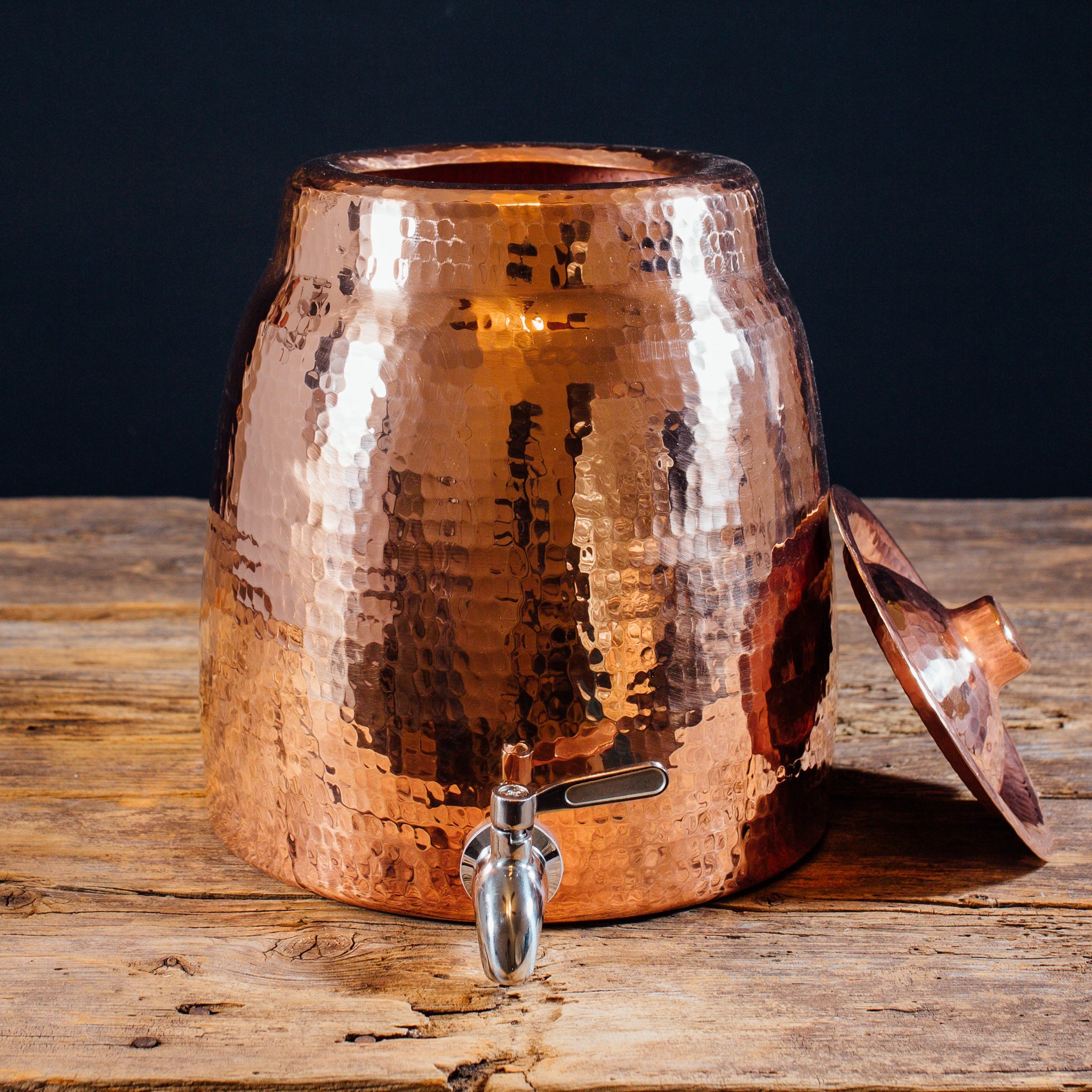From Art to Capability: The Many Applications of Distinct Copper Products
From Art to Capability: The Many Applications of Distinct Copper Products
Blog Article
Exactly How Copper Products Add To Lasting Practices in Different Industries
Copper items are progressively acknowledged for their considerable contributions to lasting practices across numerous markets, driven by their integral residential or commercial properties such as performance, longevity, and recyclability. In renewable power systems, for example, copper boosts the capability of solar and wind innovations, while its application in building minimizes waste with long life. The material's antimicrobial characteristics offer encouraging advantages in medical care settings. As markets seek to embrace even more sustainable practices, the duty of copper could confirm pivotal in attaining ecological goals. What implications might this have for future innovations in sustainability?
Copper in Renewable Energy
Copper plays an essential function in the innovation of renewable resource technologies, acting as a vital conductor in various applications. Its outstanding electrical conductivity and resistance to corrosion make it an ideal product for electrical circuitry, which is necessary in photovoltaic panels, wind turbines, and energy storage systems. In solar photovoltaic systems, copper is made use of in the affiliations and circuitry, allowing reliable energy conversion from sunlight to electricity.
In wind energy, copper is indispensable to the generators and transformers that convert kinetic energy into electric energy, making certain optimum efficiency and integrity. The demand for electric vehicles (EVs) is raising, with copper being an essential part in batteries, motors, and billing facilities. The shift to EVs substantially enhances the demand for copper, as these cars commonly utilize four times extra copper than standard interior burning engine cars.
As the world looks for to reduce climate adjustment and shift to sustainable power sources, copper's function ends up being increasingly critical. The product not only boosts the efficiency and longevity of renewable power systems however likewise sustains the broader goal of minimizing greenhouse gas exhausts and advertising a lasting future.
Eco-Friendly Building And Construction Materials
In current years, there has been a notable change towards the adoption of eco-friendly building materials in response to expanding environmental concerns. This modification is motivated by the requirement for lasting alternatives that minimize eco-friendly footprints while maintaining structural honesty and aesthetic charm.
Copper, recognized for its toughness and recyclability, has actually become a vital gamer in this field. It can be used in roof covering, plumbing, and electric systems, adding to power effectiveness and reducing waste. Copper's longevity suggests fewer substitutes with time, more boosting its sustainability profile.
Additionally, products such as bamboo, recovered wood, and reused steel are acquiring appeal. These choices not only use lowered environmental impact yet additionally promote resource preservation. As constructing codes increasingly stress sustainability, architects and builders are incorporating these products into their jobs, promoting advancement in style.
The raising fostering of eco-friendly building products reflects a wider dedication to sustainability in the constructed setting. By focusing on these products, the construction industry can considerably reduce its carbon footprint, align with regulative requirements, and support a much healthier ecosystem for future generations. This fad marks a pivotal action in the direction of a much more sustainable future in building.
Copper's Function in Medical care
Recent research studies have highlighted the significant function of copper in health care setups, specifically because of its antimicrobial residential properties. Copper surface areas have actually been shown to lower the visibility of microorganisms, including bacteria and infections, by as much as 99.9% within a short duration. This exceptional efficiency makes copper an invaluable material for high-touch surfaces in medical facilities, such as doorknobs, bed rails, and IV posts, therefore contributing to improved infection control procedures.
Along with its direct antimicrobial impacts, copper likewise contributes in the broader context of medical facility sustainability (Copper Products). By including copper right into medical tools more info here and home furnishings, healthcare facilities can decrease the occurrence of healthcare-associated infections (HAIs), which not only improves person results yet likewise lowers the expenses connected with prolonged health center stays and additional therapies
Additionally, copper's longevity and recyclability straighten with lasting techniques, enabling for responsible resource administration. As health care systems significantly prioritize both patient safety and ecological stewardship, the assimilation of copper items is coming to be more common. This twin advantage highlights copper's crucial payment to a much healthier, much safer, and much more lasting medical care setting.
Sustainability in Transport

In addition, copper's toughness and rust resistance add to the longevity of transportation facilities (Copper Products). In rail systems, for circumstances, copper parts boost the dependability and effectiveness of signaling and power systems, essential for lowering delays and power consumption. In addition, copper's role in renewable resource systems, such as solar and wind, sustains lasting browse this site transport options by offering tidy energy for electric transit options
Investments in copper technology not only foster sustainability but additionally stimulate financial growth and work creation in environment-friendly markets. As industries make every effort to satisfy rigid ecological policies, the application of copper items in transportation arises as a critical technique in attaining sustainability goals and advertising a cleaner, much more effective future.
Copper and Circular Economy
As the globe increasingly accepts sustainability, the function of copper in the round economic climate comes to be ever before more significant. Copper's intrinsic residential or commercial properties-- such as its recyclability, conductivity, and durability-- setting it as a vital product in a resource-efficient economic situation. The circular economy aims to lessen waste and optimize resource use via recycling and reusing materials, and copper master this regard.
The metal can be recycled indefinitely without loss of top quality, making it an optimal candidate for sustainable methods across various industries, consisting of construction, electronic devices, and eco-friendly power. By recouping and recycling copper from end-of-life items, markets can dramatically reduce the demand for virgin products, consequently reducing ecological influences linked with mining and handling.
Furthermore, the integration of copper right into round blog here economic situation frameworks not only conserves resources however additionally fosters development. Services that focus on copper recycling add to a much more sustainable supply chain, boosting their competition while straightening with governing demands and customer preferences for environmentally responsible products.
Verdict
To conclude, copper products considerably contribute to lasting methods across numerous industries. Their vital function in boosting renewable resource modern technologies, promoting eco-friendly building and construction products, supporting infection control in health care, assisting in sustainable transportation, and symbolizing the principles of a round economy highlights the versatility and relevance of copper. By incorporating copper right into various applications, sectors can attain greater performance, decrease ecological effect, and straighten with worldwide sustainability objectives, ultimately fostering a much more sustainable future.

Copper's excellent conductivity makes it a recommended material in electric automobile (EV) systems, boosting power effectiveness and performance. Furthermore, copper's duty in renewable power systems, such as solar and wind, supports sustainable transport options by supplying tidy power for electrical transportation alternatives.
Their vital role in boosting sustainable energy innovations, advertising green building and construction products, sustaining infection control in healthcare, facilitating lasting transport, and symbolizing the concepts of a round economic climate emphasizes the versatility and value of copper.
Report this page